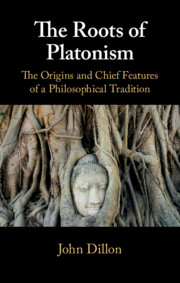Book contents
- The Roots of Platonism
- The Roots of Platonism
- Copyright page
- Dedication
- Contents
- Preface
- Acknowledgements
- Introduction
- Chapter 1 The Origins of Platonist Dogmatism
- Chapter 2 Monist and Dualist Tendencies in Platonism before Plotinus
- Chapter 3 The Ideas as Thoughts of God
- Chapter 4 The Hierarchy of Being as a Framework for Platonist Ethical Theory
- Chapter 5 Carneades the Socratic
- Chapter 6 Plutarch’s Relation to the New-Academic Tradition
- Conclusion
- Bibliography
- Index Locorum
- General Index
- References
Bibliography
Published online by Cambridge University Press: 01 February 2019
- The Roots of Platonism
- The Roots of Platonism
- Copyright page
- Dedication
- Contents
- Preface
- Acknowledgements
- Introduction
- Chapter 1 The Origins of Platonist Dogmatism
- Chapter 2 Monist and Dualist Tendencies in Platonism before Plotinus
- Chapter 3 The Ideas as Thoughts of God
- Chapter 4 The Hierarchy of Being as a Framework for Platonist Ethical Theory
- Chapter 5 Carneades the Socratic
- Chapter 6 Plutarch’s Relation to the New-Academic Tradition
- Conclusion
- Bibliography
- Index Locorum
- General Index
- References
Summary

- Type
- Chapter
- Information
- The Roots of PlatonismThe Origins and Chief Features of a Philosophical Tradition, pp. 96 - 100Publisher: Cambridge University PressPrint publication year: 2019



